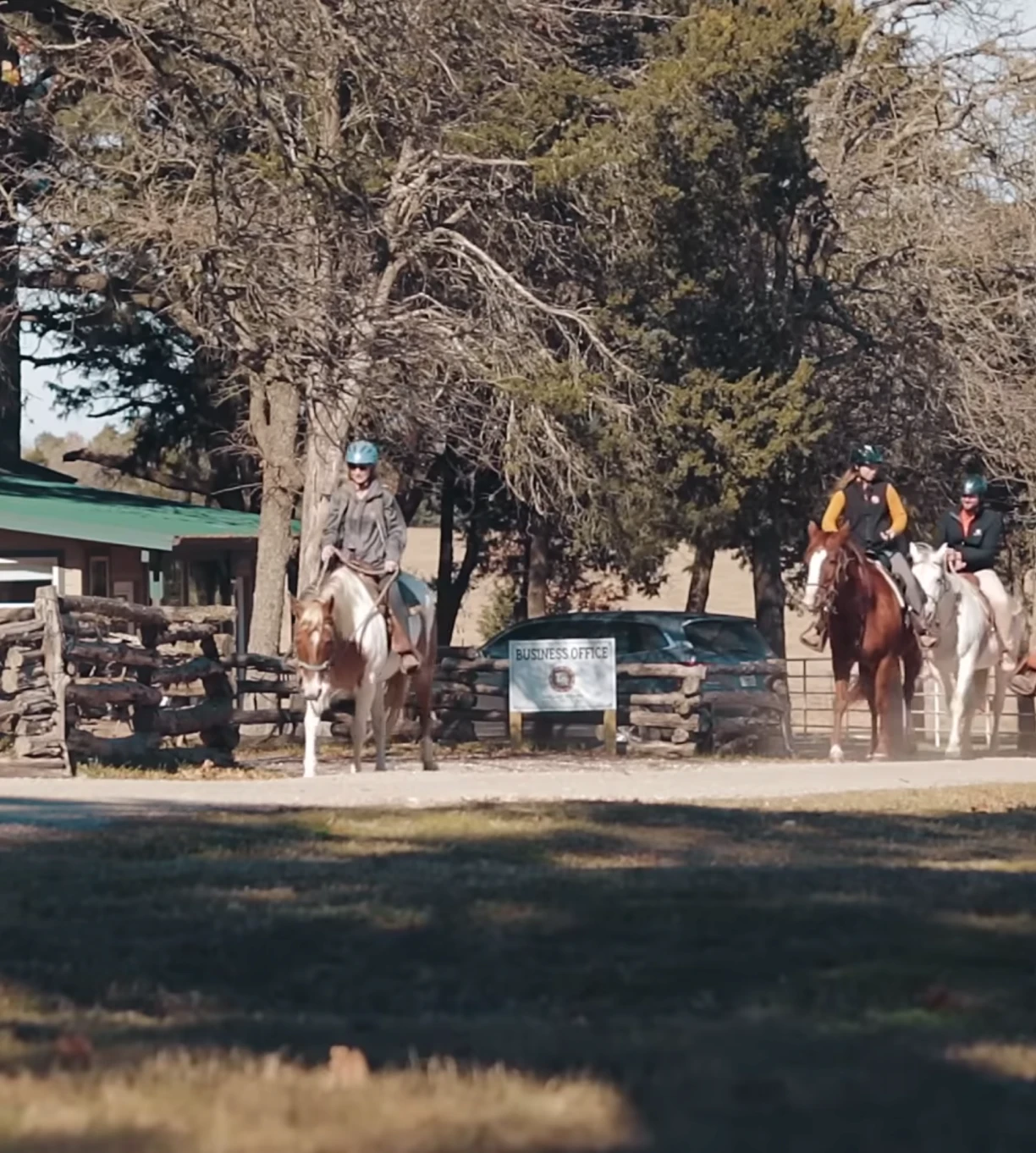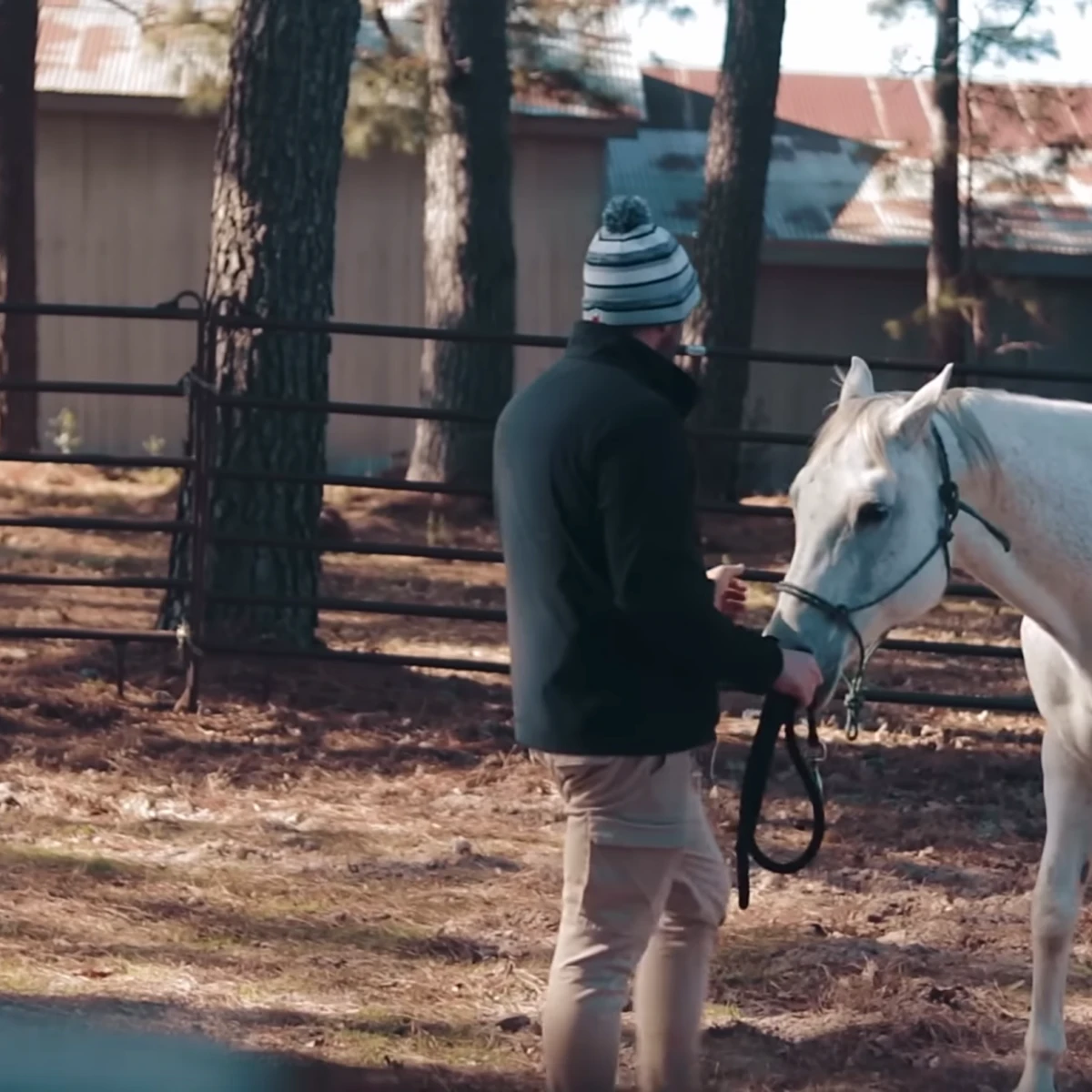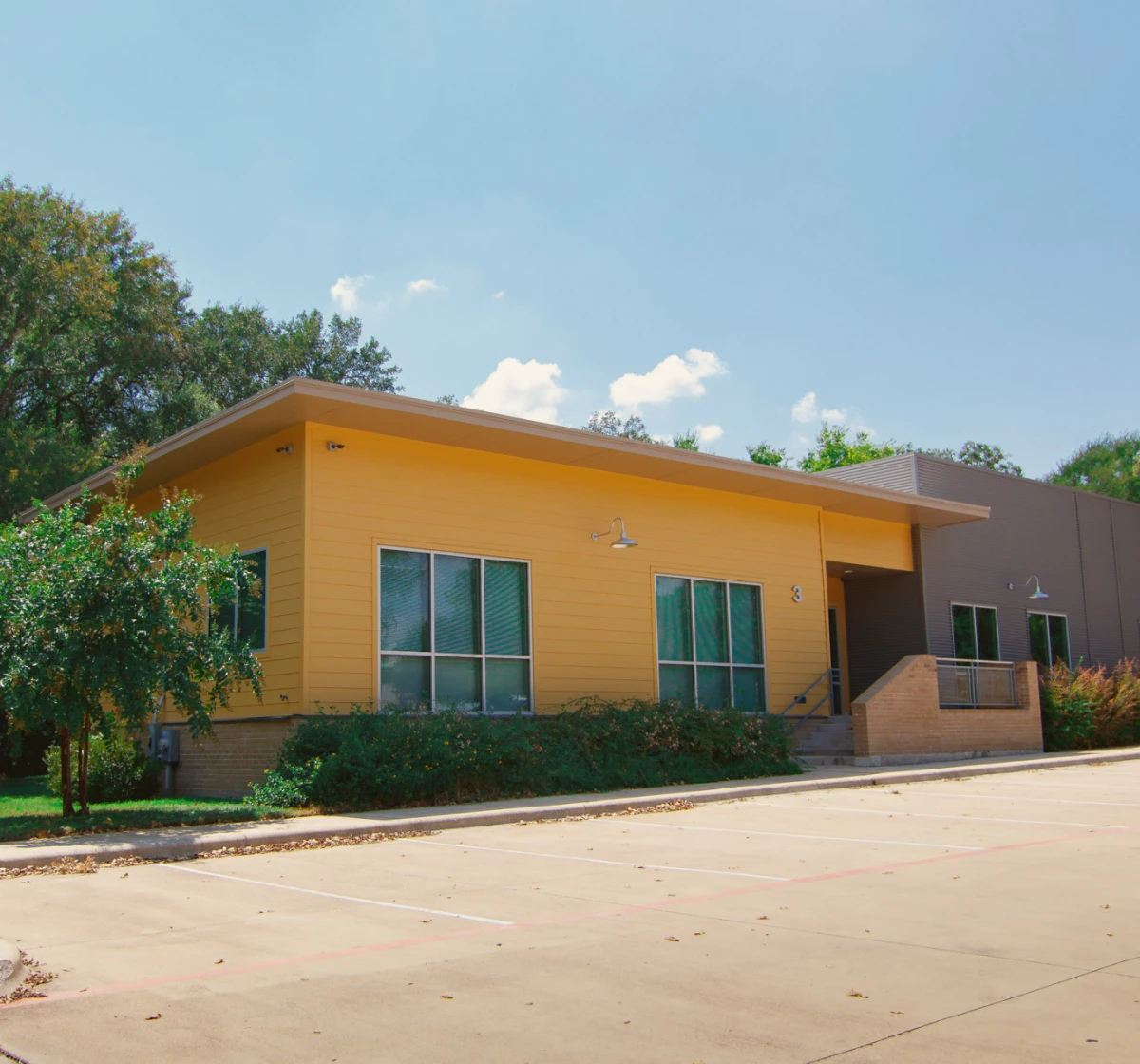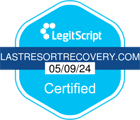We work with insurances. Verify yours now
There’s Strength in Numbers (and in Community) at The Last Resort
At The Last Resort, our evidence-based 12-step immersion Program serves as the foundation of our men’s recovery approach. This comprehensive program doesn’t just introduce the 12 steps—it fully integrates them into daily life, creating a transformative recovery experience that addresses addiction at its core.
By embracing this approach, our clients find strength not only in themselves but in the collective wisdom and encouragement of others on the same journey.


12 Step Immersion Therapy, also known as 12-Step Facilitation Therapy is a structured treatment approach that introduces and guides individuals through the principles of 12-step programs, such as Alcoholics Anonymous (AA) or Narcotics Anonymous (NA).[1] This evidence-based therapy is designed to help people struggling with substance abuse engage with and benefit from the 12-step philosophy and community.
The therapy typically focuses on key ideas such as acceptance (recognizing addiction as a chronic disease and that abstinence is the only viable solution) and active involvement in 12-step meetings and activities.[2] Through individual counseling sessions, group therapy, and homework assignments, clients explore each of the 12 steps, learning how to apply them to their unique situations and challenges around substance use disorders.
12 Step Facilitation Therapy also emphasizes the importance of community and peer support in recovery. It encourages clients to attend 12-step meetings, find a sponsor, and become active members of the recovery community. This approach not only provides a framework for achieving and maintaining sobriety but also helps individuals develop a supportive network and a sense of belonging, which are crucial for long-term recovery.

12-step treatment and 12-step groups work by systematically guiding people through the principles and practices of 12-step programs, providing a structured approach to addiction recovery from drug abuse:[3]
The therapy helps individuals accept their addiction as a chronic disease and recognize the need for abstinence. This acceptance, coupled with the concept of powerlessness over addiction via willpower, reduces denial and increases motivation for change.
By working through the steps, individuals learn to identify and change harmful thought patterns and beliefs associated with their addiction.
The therapy encourages active involvement in 12-step meetings and finding a sponsor, creating a robust support network crucial for sustained recovery.
While not religious, the spiritual aspects of the 12 steps help many find meaning, purpose, and hope beyond their addiction.
Regular meetings, step work, and sponsorship create a system of accountability that reinforces recovery-oriented behaviors.
The program teaches practical strategies for managing cravings, dealing with triggers, and navigating challenging situations without substance use.
The 12-step model provides a framework for ongoing support and personal growth even after formal treatment ends.
The combination of these elements addresses the physical, mental, emotional, and spiritual aspects of addiction, offering a comprehensive approach to recovery. Moreover, the widespread availability of 12-step meetings in most communities ensures that individuals have access to continued support wherever they go, making it an effective long-term strategy for maintaining sobriety.
Research consistently demonstrates the significant impact of the 12 step facilitation model on addiction recovery outcomes. Studies have shown that early engagement with 12-Step programs, particularly when integrated with formal treatment, leads to improved results in achieving and maintaining sobriety.[4]
Key findings include:[5, 6]
Individuals who begin participating in 12-Step meetings while still in treatment show better outcomes. This suggests that introducing 12-Step principles and practices during the initial stages of recovery can be particularly beneficial.
Attending 12-Step meetings while simultaneously enrolled in specialty treatment programs is associated with more positive results. This combination appears to provide a comprehensive approach to recovery, addressing both clinical and community-based support needs.
Consistent and frequent attendance at 12-Step meetings, particularly three or more times per week, correlates with better substance use outcomes. This underscores the importance of regular engagement with the 12-Step community.
A comprehensive analysis by Stanford School of Medicine found twelve step-based models to be the most effective path to abstinence among various recovery approaches. This finding highlights the unique strengths of the 12-Step model in promoting complete abstinence.
12-Step facilitation interventions have been shown to produce similar benefits to other treatment modalities across various drinking-related outcomes. However, they demonstrate superiority in achieving continuous abstinence and remission, two critical markers of long-term recovery success.
These findings collectively underscore the value of 12-Step programs as a cornerstone of effective addiction treatment. By combining the structure and support of 12-Step participation with professional treatment, individuals can significantly enhance their chances of achieving lasting recovery.

When you enter 12 Step Facilitation Therapy at The Last Resort, you’ll embark on a transformative journey that combines professional guidance with the time-tested principles of 12-step programs. Initially, you’ll meet with a clinician who will introduce you to the 12-step philosophy and help you understand how it applies to your unique situation. This personalized approach ensures that you grasp the core concepts in a way that resonates with your experiences and challenges.
You’ll participate in both individual and group therapy sessions focused on 12 step facilitation interventions. In these sessions, you’ll have the opportunity to explore each step in depth, discussing your thoughts, fears, and progress with your therapist and peers. This process encourages self-reflection and personal growth in a supportive environment.
You’ll also have the chance to attend on-site 12-step meetings. These meetings will help you become comfortable with the format and dynamics of 12-step groups, preparing you for continued participation after treatment. You’ll learn how to share your story, listen to others, and build connections within the recovery community.
As you progress, you’ll notice a gradual shift in your perspective and behavior. The 12-step approach often leads to profound spiritual growth and a new sense of purpose. You’ll learn to surrender control, accept support from others, and develop a more positive outlook on life and recovery.

At The Last Resort, our 12 Step Facilitation program harnesses the power of community to support men in their journey to recovery. We believe that healing happens not just within the individual, but through connections with others who understand the challenges of addiction. Our approach creates a brotherhood of support, where men learn to trust, share, and grow together.
Remember, the journey through the 12 steps is personal and ongoing. At The Last Resort, we’ll provide you with the tools, support, and environment to begin this journey, setting a strong foundation for your continued growth in recovery long after you leave our care.
Our program stands apart from other 12-step approaches through its comprehensive integration of recovery principles:
We move beyond classroom learning to lived experience. Each step is practiced through targeted activities, equine therapy, and peer interactions that make abstract principles concrete and applicable.
Recovery happens within a community of men facing similar challenges. Our structured brotherhood activities build the trust and vulnerability necessary for authentic healing and accountability.
Our experienced therapists guide the step work process, helping men address underlying trauma, family dynamics, and psychological barriers to fully embracing recovery principles.
We don’t just teach the steps—we connect men directly to the recovery community through meetings, sponsorship relationships, and service opportunities that continue long after treatment ends.
We’re here to be the solution you seek and empower you to pursue the healing you need. Reach out for help today and step forward in confidence.
Paying for treatment should never be a barrier to recovery and healing. There are several options available that do not put your family in financial jeopardy. The Last Resort is an in-network provider that works with most insurance companies.








We’re excited to share the positive experiences of our other community members, many of whom were where you are today – overwhelmed and uncertain. These are their stories. What will yours be?
12 Step Facilitation Therapy addresses the psychological aspects of drug use by encouraging individuals to explore and understand their thoughts, emotions, and behaviors related to substance use. It promotes self-awareness and accountability through reflection on personal experiences and relationships. The therapy helps people identify triggers, develop coping strategies, and build resilience to manage cravings and emotional challenges effectively, particularly when paired with other psychotherapy and interventions, such as cognitive behavioral therapy (CBT).
12 Step Facilitation Therapy has been found to be effective for various types of addiction (and co-occurring mental health disorders) in substance abuse treatment, including alcoholism and drug addiction (both illicit drugs and prescription medications). The principles and steps outlined in the 12 steps can be adapted to address the specific challenges and patterns of behavior associated with different types of addiction by your addiction treatment providers, and both in inpatient or outpatient treatment.
Sponsorship is a key component of 12 Step Facilitation Therapy and support groups, where those in recovery are paired with a more experienced peer who has successfully navigated the 12 Steps and maintained sobriety. The sponsor provides guidance, support, and accountability throughout the recovery process. They serve as a mentor, offering practical advice, encouragement, and a listening ear during challenging times. Sponsorship fosters a sense of community, connection, and continuity in recovery efforts.
Yes, 12 Step Facilitation Therapy can help individuals in recovery rebuild relationships affected by alcohol use disorder and other addictions. By addressing personal responsibility, making amends (where appropriate), and developing healthier communication and behavior patterns, people can repair trust and strengthen connections with loved ones and their social networks. The therapy encourages openness, honesty, and humility, supporting the process of healing and rebuilding relationships in a supportive and structured environment.
Progress in Twelve Step Facilitation Therapy is often monitored through various indicators, including:
Feedback from sponsor or therapist: Assessment of engagement, commitment to recovery, and adherence to program guidelines
[1] MediLexicon International. (n.d.). 12 Step program: Origin, how it works, and more. Medical News Today. https://www.medicalnewstoday.com/articles/12-step-program on July 3, 2024
[2] Mendola, A., & Gibson, R. L. (2016, June 1). Addiction, 12-step programs, and evidentiary standards for ethically and clinically sound treatment recommendations: What should clinicians do?. Journal of Ethics | American Medical Association. https://journalofethics.ama-assn.org/article/addiction-12-step-programs-and-evidentiary-standards-ethically-and-clinically-sound-treatment/2016-06 on July 3, 2024
[3] Twelve step facilitation therapy manual. (n.d.). https://www.niaaa.nih.gov/sites/default/files/match01.pdf on July 3, 2024
[4] Donovan, D. M., Ingalsbe, M. H., Benbow, J., & Daley, D. C. (2013). 12-step interventions and mutual support programs for Substance Use Disorders: An overview. Social work in public health. https://www.ncbi.nlm.nih.gov/pmc/articles/PMC3753023/ on July 3, 2024
[5] News Center. (2020, March 11). Alcoholics anonymous most effective path to alcohol abstinence. https://med.stanford.edu/news/all-news/2020/03/alcoholics-anonymous-most-effective-path-to-alcohol-abstinence.html on July 3, 2024
[6] Kelly, J. F., Abry, A., Ferri, M., & Humphreys, K. (2020, October 20). Alcoholics anonymous and 12-step facilitation treatments for alcohol use disorder: A distillation of a 2020 Cochrane review for clinicians and policy makers. Alcohol and alcoholism (Oxford, Oxfordshire). https://www.ncbi.nlm.nih.gov/pmc/articles/PMC8060988/ on July 3, 2024
Come experience a healing adventure like none other. Our expansive and secluded men’s-only ranch sits on 55 acres of central Texas beauty and is a tranquil sanctuary designed to promote rest, reflection, and recovery.
From rolling hills and ancient tree groves to warm ranch-style accommodations, you’ll feel right at home. You’ll enjoy a full range of amenities and experiences, including an outdoor pool oasis, a fitness studio, and a fully-stocked horse barn.
Our secondary location is a comfortable, modern facility with shared and private spaces that is home to all of our outpatient services. This center is conveniently located in south Austin off Menchaca Rd.
When drug or alcohol addiction takes root in your life, it colors everything you do, how you show up at work, at home, and for yourself. Your family often feels the worst of it. You know this is not what you had in mind for your life. There has to be a healthier way to manage your emotional distress and overcome the challenges you face.
As the opioid epidemic has continued to explode, so has the treatment industry. Unfortunately, not all are of the same quality or the same caliber.
Accredited status for our addiction treatment center confirms that the services we offer meet or exceed the official standards of practice established by the state and other governing organizations by passing a series of detailed assessments.
Understanding accreditation affords you and your loved ones the confidence to pursue long-term recovery with renewed peace of mind.




If you or a loved one is battling alcohol or drug addiction, you’re in the right place. Even if you’ve tried other treatment programs or think you’re at the end of the line, this is the community you need to thrive. We can’t wait to facilitate your recovery and be part of your success story.
As part of our commitment to clients and families, we share high-quality resources, industry-related news, and practical education with those in our circle of influence. We hope these resources equip and inspire those who read them to take positive, healthy action.
The goal of all content is to empower and equip without compromise. Every resource The Last Resort creates is not supported by sponsorship or advertisers and is therefore free of bias and murky agendas.
All of our educational materials are produced or reviewed by the team at The Last Resort. We staff and consult with subject matter experts and industry professionals to ensure all that is shared is accurate and accessible.